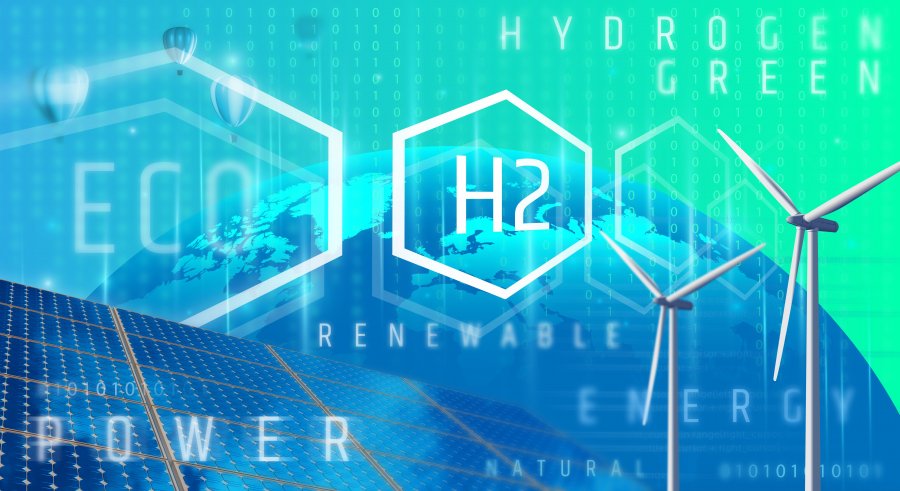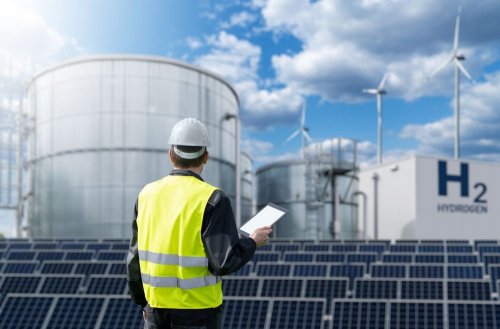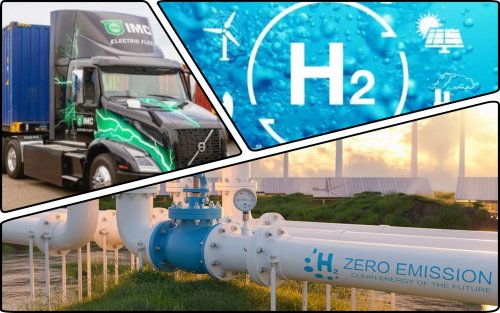Germany's new government has been exposed for interfering in 2021 with the activities of the European Commission to influence EU legislation governing the production of renewable hydrogen.
This resulted in an almost year-long delay in installation green hydrogen rules of the bloc, reports EURACTIV.
The article noted that hydrogen is expected to play a key role in Europe's decarbonization efforts, but actual market uptake is slow due to regulatory uncertainty. The EU is mired in debate over the rules governing the production of green hydrogen produced using renewable electricity.
"Back in 2018, the European Commission was tasked with creating a set of rules to ensure that electrolyzers that produce green hydrogen use only additional wind or solar energy and do not deprive other sectors of scarce renewable electricity," the authors emphasized.
This set off a lobbying battle over the exact meaning of the "additionality" rule, which the European Commission (EC) was expected to spell out in a so-called "delegated act" – a fast-track procedure used for technical updates to legislation.
The article emphasized that this raised the stakes for Germany, which wants to replace fossil fuels for transport and energy-intensive sectors, including the metallurgical and chemical industries, with green hydrogen.
The authors noted that Berlin intervened in December 2021 with a letter to the European Commission sent by Patrick Greichen, newly appointed secretary of state and right-hand man to Vice Chancellor Robert Habeck. At the time, the EC was about to complete the three-year process of developing its "additionality" rules and was ready to present its long-awaited delegated act. However, this project did not fit into Germany's plans.
"A large part of the European hydrogen strategy's goal of 40 GW will be realized in Germany," Greichen said in a letter to Stefano Grassi, chief of staff of Energy Commissioner Kadri Simson. "To achieve this ambitious goal, we depend on an enabling European framework that ensures both stable and attractive investment conditions, as well as the reliability of criteria for ecologically clean hydrogen."
The authors emphasized that the result of the EC's many years of work was not good enough for Berlin.
In the letter, Greichen expressed concern, in particular, about the lack of flexibility in the Commission's draft. Among other proposals, he called for rules to ensure that electrolysers can operate at full load for at least 5,000 hours a year, or about 57% of the time. Berlin also proposed a gradual introduction of RES with "20% in 2026, 25% in 2028 and 30% in 2030"
The article noted that as Germany seeks to import hydrogen from Africa, Australia and South America, Berlin has also asked the Commission to consider introducing a "common starting point" that would allow imports of hydrogen from other countries to be considered green under certain conditions.
In order to transpose German requests, Greichen asked the Commission to delay the rules.
"Now, almost a year later, the EU executive has not yet presented its additionality rules," the article says. – One source familiar with the matter spoke of a "breakdown in the process", while another said that Commission officials are unhappy with what they perceive as constant interference from EU capitals. While Berlin's intervention was motivated by genuine concern, it signals a "typical" German approach to EU policymaking, one source commented.
Although the Commission submitted its draft rules of "additionality" for public discussion, they have not yet been accompanied by a legislative proposal.
The article highlighted that the European Parliament added to the confusion by voting in favor of an amendment to the EU's renewable energy directive in September, which abolished the principle of additionality for the production of e-fuels in transport.
"We respect the position of the Parliament and will take it into account in the ongoing work on delegated acts. We are currently assessing the consequences of the vote in the European Parliament also for the wider hydrogen agenda and will continue to work with co-legislators to ensure regulatory certainty for the hydrogen sector as soon as possible," the EC explained .
The authors noted that the European hydrogen industry is losing patience. Although the EU led hydrogen development from the beginning, other continents have since caught up. Thus, the US anti-inflation law introduced tax breaks that were considered so generous that the shares of hydrogen companies rose by at least 75% after its announcement.
"In order to increase hydrogen production, we need legal certainty as soon as possible," said Yorgo Chatsimarkakis, CEO of the industry association Hydrogen Europe. "We urgently need a legal act that regulates additionality."
Chatsimarkakis also warned about the outflow of hydrogen producers in the United States.
In October, Hydrogen Europe teamed up with rival group Renewable Hydrogen Coalition to urge the Commission to speed up the process.
The report added that EU hydrogen rules are further complicated by disagreements between France and Germany over rules for "low-carbon" hydrogen, which can be produced either from reduced fossil gas – with carbon capture and storage (CCS) – or nuclear electricity.
Thus, France insists that the use of electricity from low-carbon nuclear power plants should be labeled "green" or "low-carbon" according to the EU's taxonomy of environmental financing. And Germany - that only hydrogen produced from renewable electricity should be considered ecological.
Earlier, EcoPolitic wrote, that the president of the European Commission, Ursula von der Leyen, said that the EU plans to create a new hydrogen bank European Hydrogen Bank, which invests €3 billion in the development of the H2 market.
As EcoPolitic previously reported, in the US, the bill on reducing inflation, among many climate-oriented provisions, includes tax credits for production of green hydrogen at the lowest price in the world $0.73 per kilogram.





